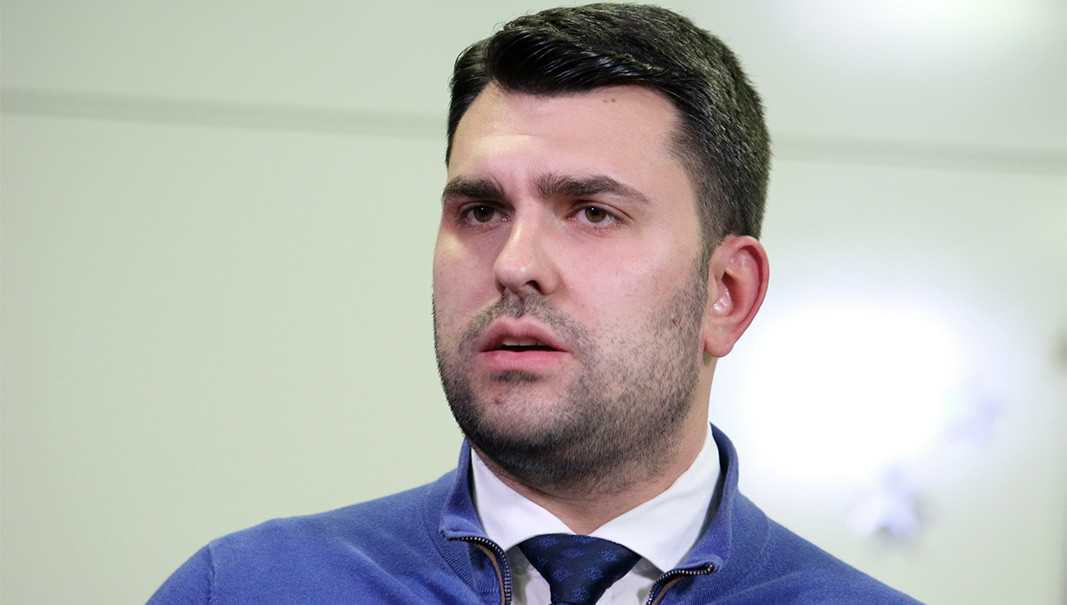The upcoming parliamentary elections on April 4th will be different than any of the previous ones. The reason, of course, is that they will take place in a situation of pandemic. No institution or government in Europe or in the world is able to predict what the epidemiological situation would be in three months, which raises a number of questions about the way the election campaign would be conducted. The restrictive measures are justified when it comes to the reduced pressure on the health-care system, but the unpredictable situation related to the pandemic has started to have some negative effects on the government:

"There is huge tension building up against the ruling party," sociologist Kolyo Kolev has told the Bulgarian National Radio. "According to polls, 19% want GERB to rule and 52% want a government without GERB. If these 19 percent managed to consolidate and make GERB first political force, this would make those who did not vote rise against it. This is an interesting psychological moment in the elections."
A large number of voters will be looking for an alternative in one of the political formations that are currently not represented in parliament:
"There is a huge erosion of trust in the political elite and all this provokes the search for alternatives, outside of GERB and BSP,” the sociologist adds. “Only the MRF are in a relatively good political health. It seems that it would be difficult to form a stable coalition.”
On the other hand, in order to be motivated to vote, citizens must receive guarantees of the fairness of the vote and counting process. All the leaders of the non-parliamentary political formations that took part in the presidential consultations were firm that people's health and protection of the fairness of the vote were extremely important. Some of their proposals include video surveillance of the election process and a civic election commission under the auspices of the president with the right to conduct parallel counting. Representatives of the Bulgarian community abroad should also present their proposals that would facilitate their active participation in the election process. They call for a change in the Electoral Code that would allow for open ballot system. Bulgarian abroad believe that in this way election frauds would be stopped, as voters would have the right to check how their vote was counted. The open vote also gives the voter right to withdraw their support for the candidate if they are disappointed with their work. The introduction of open ballot system would also reduce the cost of the election process.
According to Deputy Minister of Foreign Affairs, Georg Georgiev, voting abroad would be a real challenge, both because of the strict anti-epidemic measures and because of the upcoming Easter that Catholics and Protestants would mark on April 4.

"We already have a scheduled date, which has allowed for coordination with our diplomatic missions and asking the host countries for permission to open sections in our missions, but also outside them," the deputy minister said. "However, from the experience of other countries we know that some received such permits just days before the vote. We must not forget that a possible permission would be followed by mobilization of staff, technical and health support for the workers in the sections, etc."
Georgiev says that sections would be opened in all countries which Bulgaria maintains diplomatic relations with. Priority will be given to those with the largest Bulgarian communities.
English: Alexander Markov
Security cameras captured a bear in a residential neighborhood of the town of Karlovo a few days ago. The predator came down to the houses in the northern part of the town and walked calmly along the streets until it was startled by a passing car...
The Day of the Christian Family is an annual event that brings Bulgarians in Hamburg together. 2025 is no exception, with invitations having been circulating on social media for some time, as this year marks the 20th anniversary of the establishment of..
Kosovo is heading for early elections after nine months of failed attempts to form a government Kosovo President Vjosa Osmani has dissolved Parliament, Koha Ditore reports. This decision came after the proposed cabinet, put forward by Glauk..

+359 2 9336 661
